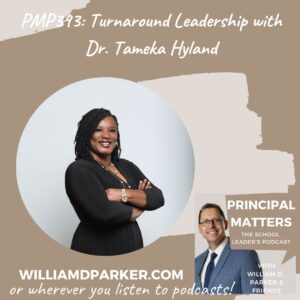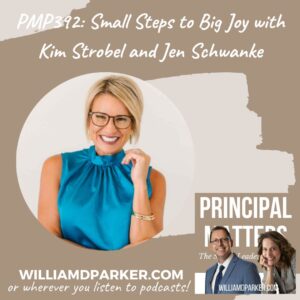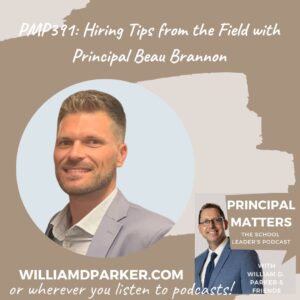Podcast: Play in new window | Download
Oklahoma has experienced its share of storms and severe weather this spring.

The other day, our family was sitting in our storm closet as sirens were sounding at 6:30AM. Afterwards, I was driving my seventh-grade son, Jack, to school. As we approached the school, I began to predict how his principals would manage the morning.
“Most likely, several teachers will be late because of the storms,” I said. “So, you’ll probably wait in the gym until staff have reported and then students will be sent to class.”
“Dad,” he interrupted, “I have good principals. I think they’ll know what to do.”
I started laughing. I realized at that moment I was parenting and being a principal at the same time. At that moment, he just needed me to be dad.
As the father of four, I had the privilege of being the principal of my two oldest daughters. For my younger two children, I have been their dad but not their principal. With my older two, I had to maneuver the landscape of both leading a school and being dad in their school.
Regardless if your children attend the school of which you are the principal, or they attend a different school, being the principal and a parent is a tricky balance. Each person has a complicated balance with these two roles, so this will speak to different people in different ways.
This week, Jen Schwanke, author and principal, co-hosts podcast episode 154 to discuss the dynamics of parenting from both the principal’s perspective and the child’s perspective:
From the principal’s perspective, here are four questions to ask:
- What do you do when we see poor instructional decisions being made by your child’s teacher(s)?
- When do you to step in to advocate for your child?
- How do you balance the privilege and responsibilities of your leadership?
- Are you advocating for YOUR child or ALL children? (The wisdom is to know the difference between the two.)
Just like every child you raise is different, the way you respond to the above questions is as complex as each child and situation. Be aware, be involved, and listen well so you have the most information possible for making a good decision.
Things to avoid saying:
Also, when speaking to your own children’s teachers, avoid saying comments that you HATE hearing from other parents:
“My son would never do that.”
“My daughter does not lie.”
“My daughter does not lie.”
“My child is gifted that’s why he’s bored.”
“Can you please make an exception?”
“I’m going to have to go higher up than you.”
Here are some pro-active thoughts to keep in mind instead:
- When working with your child’s teachers, assume best intentions (always listen to both sides of the story).
- Attend meetings: whether it’s an open house or parent conference nights, be present and communicate that you’re wearing the “parent” hat.
- Communicate: Look at your school from the perspective of a parent and improve your communication accordingly.
From your child’s perspective:
Helping your child navigate the role of being the “principal’s kid” means understanding your child’s individual development and personality traits. Remember your child does not always want attention as the principal’s child. Your children will also never forget being the child of a principal. How can you make that as positive as possible?
Many children of principals listen to complaints from teachers and students who hope they’ll pass along the words to you. Some people will also perceive their success as “special treatment.” Jen shares a story of a principal’s child who received 504 texts asking if her dad would call a snow-day this winter. This requires coaching your child to recognize the unique experiences they may have.
At the same time, children of principals may have information about upcoming classes, test schedules, or events that help them stay actively engaged in school. Take advantage of being close to the action to help your children make the most of their school experience.
Let’s Wrap This Up
Whether your child is in your school or a school being led by someone else, you and your child have unique challenges and experiences as well. Next week, we will continue this Parenting as Principals discussion by looking at the teacher’s perspective, things to avoid, and setting goals with your own children.
Now It’s Your Turn
What other suggestions would you add to the above do’s and don’ts for principals as parents? If you have a child in your school, ask him or her what is like to be the principal’s child. Listen and think about your child’s perspective as you navigate the tricky road of being both the parent and school leader.
Sign-up for Free Ebook and Updates
You can automatically receive new posts and a free Ebook, 8 Hats: Essential Roles for School Leaders. Let’s keep learning together!


